
Margaret Karram upon the election of Pope Leo XIV
Enable subtitles and select your preferred language.

Enable subtitles and select your preferred language.
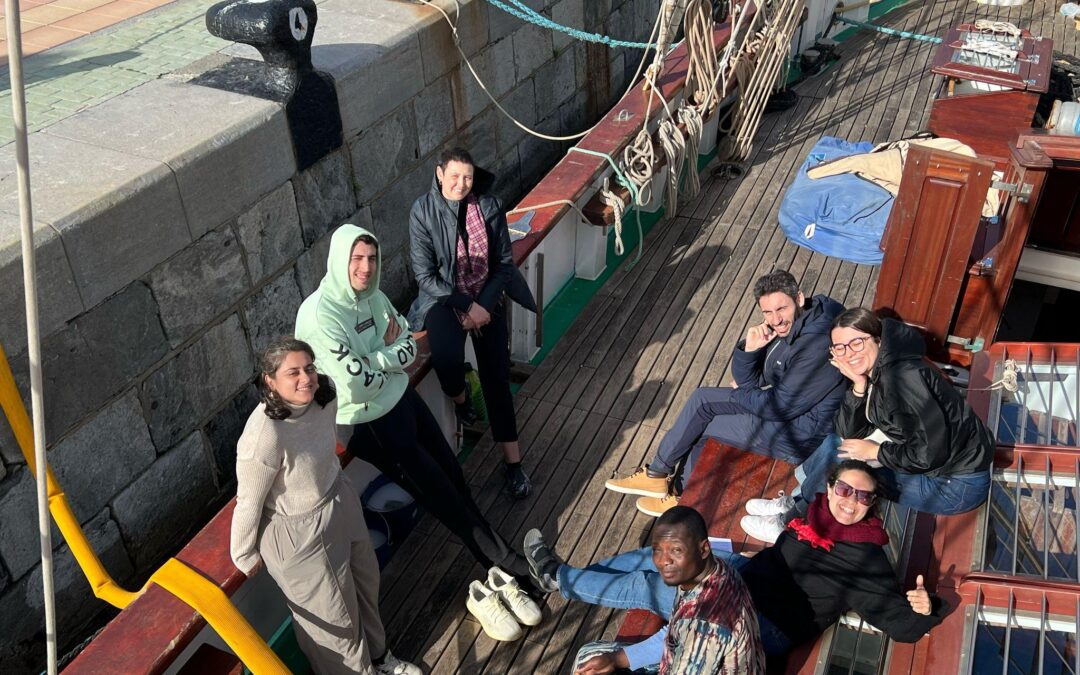
A few weeks ago, I was part of the MED25 project, a school-ship for peace. We were 20 young people from across the Mediterranean—North, South, East, and West—sailing together on a boat called “Bel Espoir.” We set off from Barcelona, and since the weather wasn’t as expected, we stopped in Ibiza before reaching Ceuta. From there, we traveled overland to Tetouan and then returned to Malaga. It wasn’t just a trip—it was a journey into each other’s lives, minds, and cultures.
Living on a boat with so many different people was beautiful, but not always easy. Every day, we had to share responsibilities: cooking, serving meals, cleaning, washing dishes. We rotated tasks in teams, so everyone experienced the full rhythm of life onboard. We also learned how to sail—which was pretty wild at first. I wish I could say it eventually became second nature, but in truth, it was harder than expected. You quickly learn how much teamwork it takes to move forward—literally.
But we weren’t there just to sail and cook. We were there to talk—really talk. We explored eight big topics together: culture, education, the role of women, religion, the environment, migration, Christian traditions, and of course, peace. These weren’t theoretical discussions. They were deeply personal. We shared our perspectives, and sometimes, we clashed. Some discussions got heated. There were moments of frustration. Some conversations even turned into real arguments.
But here’s the truth—on a boat, you can’t just walk away. You can’t go home and sleep it off. You live together. You eat together. You sail together. You are literally in the same boat. And that changes everything. It makes it impossible to stay angry for long. We had to talk it out. We had to listen. And sometimes, we had to admit we were wrong.
That, for me, was the most powerful part of the experience. I realized that most conflicts—between people or nations—don’t come from hatred. They come from ignorance. From stereotypes. From misinformation. And just like we had the chance to truly get to know each other on that boat, the world can do the same. If we could overcome years of misunderstanding in just two weeks together, imagine what could be possible if people were truly willing to listen.
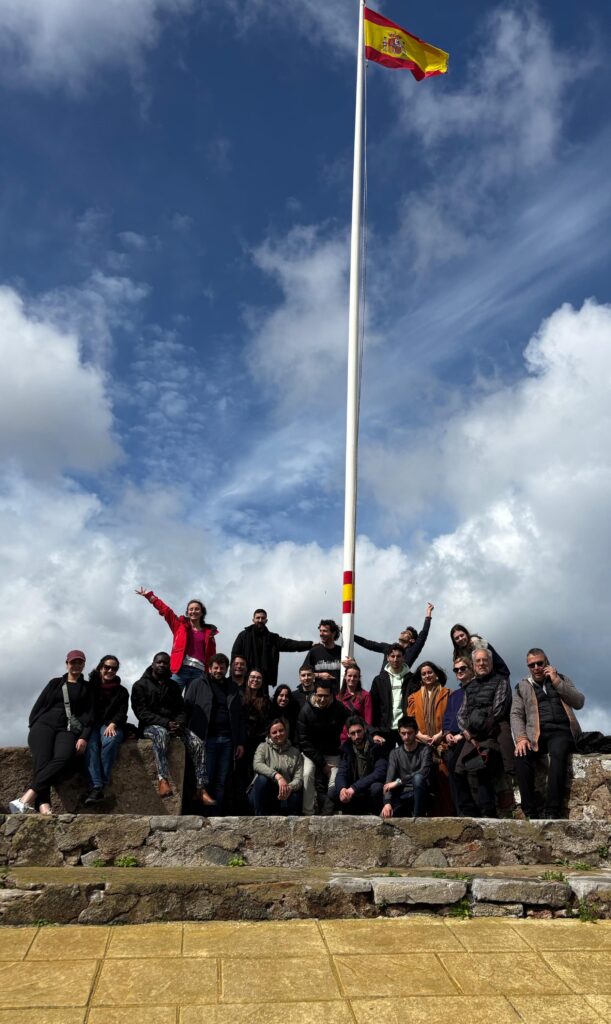
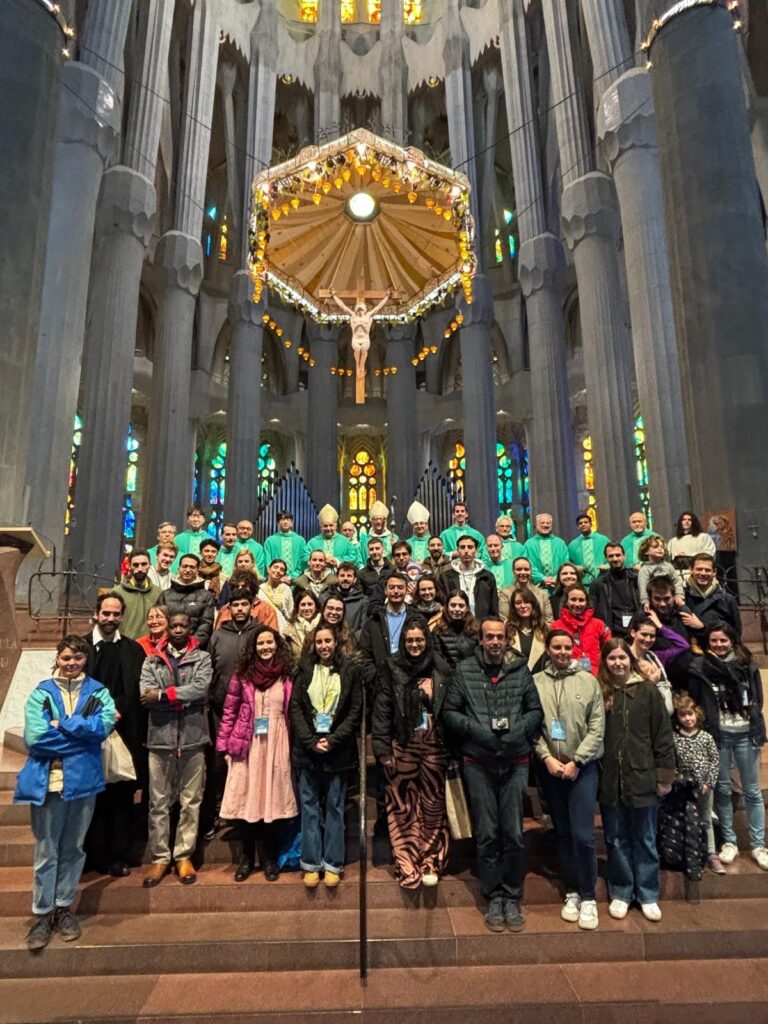
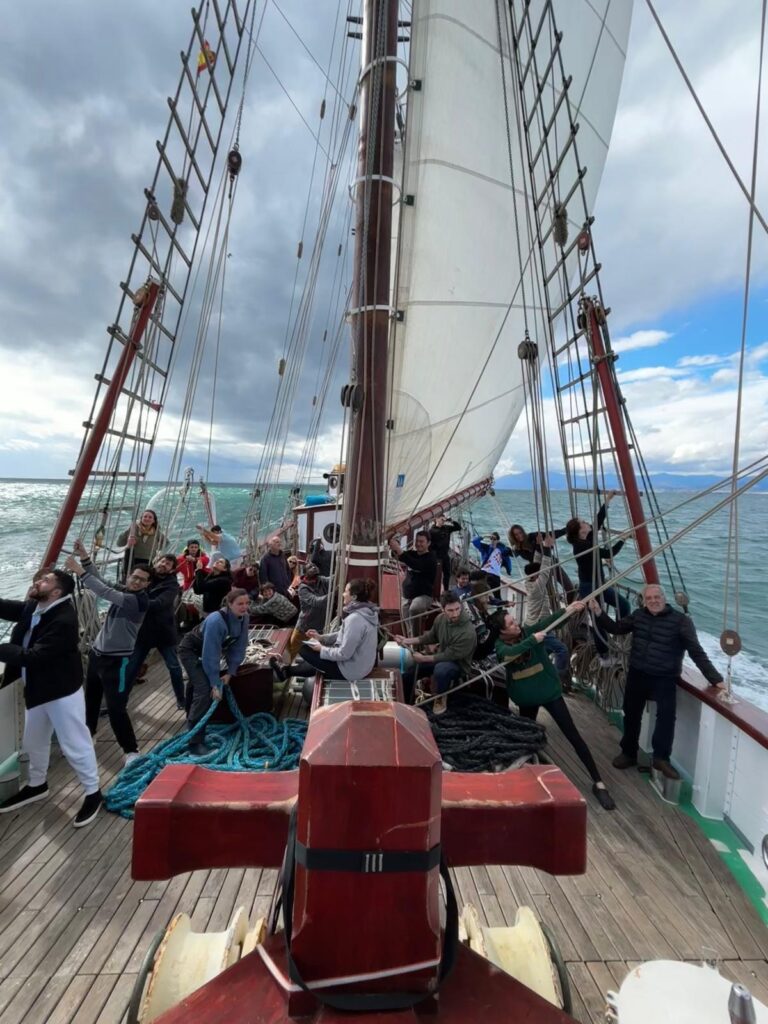
I also discovered many unexpected things. Like how Lent is celebrated differently in Europe compared to the Middle East. Or how religion plays a completely different role in politics and public life depending on where you are. In Europe, it’s often a private matter, whereas in many Middle Eastern countries, it shapes laws, policies, and daily life. These weren’t just facts—I felt the difference through the people I lived with.
What touched me the most was that, despite all our differences, we had so much in common. We laughed a lot. We danced. We got seasick together. We also fasted together, since it was both Lent and Ramadan. We created art, read books, got silly, prayed in many different languages at the same time, discovered religions like Christianity, Islam, Hinduism, and Judaism, slept under the open sky, and shared quiet, sacred moments. And through all that, I realized that peace isn’t something far off or unreachable. It’s deeply human. It’s messy, and it takes work. But it’s possible.
I came back changed. Not because I think we’ve solved all our problems, but because I now believe that peace isn’t a dream—it’s a choice. A choice that starts with truly seeing and listening to the other.
And if 20 strangers could do that together on a boat in the middle of the sea, then there’s hope for the rest of the world too.
Bertha El Hajj, Young Ambassador of Peace
To listen to this experience or others click on
Curated by Maria Grazia Berretta
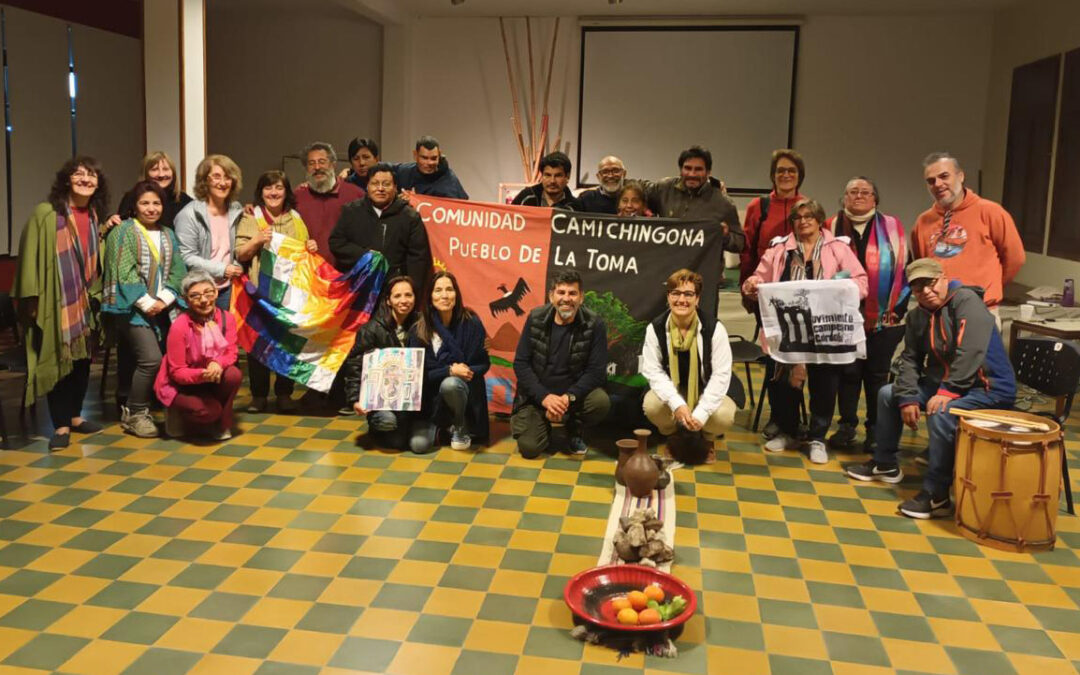
Agustin, Patricia and their two children are an Argentinian family. After following a course at Sophia ALC, the Latin-American branch of the university institute that is based in the international little town of Loppiano (Italy), they began to research their roots among the indigenous peoples, and this gave rise to a strong commitment in intercultural dialogue.

Often life presents us with situations which lead us to slowly and unintentionally close in on ourselves: this may be the result of an disagreement or because of our views or ego or even due toour fears.
But sometimes it is enough to stop and just ask ourselves a simple question, made up of simple words, and, unexpectedly, we become aware that change is possible. The questionis: “Who are you to me?” or, in other words, “Who am I to you?” Questions that, as Margaret Karram says, pave the way to taking concrete action: “take the first step, listen, spare no time, let yourself be ‘wounded’ by others.”[1] It is obvious: if we think about others, we do not think of ourselves, nor of our weaknesses, failures or emotional scars that others have inflicted. Thinking about the other person helps us put ourselves in their shoes, in an attitude of reciprocity: “how would I feel if the other person told me what I am telling him or her?” or “what can I do for him or her?”
lf our actions stem from a desire to put the well-being of those around us first, everything can acquire a greater dimension, to the point where we can tell the other person that we love them gratuitously and without expecting anything in return.
However, sometimes we are overwhelmed by discouragement, frustration, and tiredness. The American doctor, Ira Robert Byock, says that the times of greatest despair arise when we feel imprisoned in “a well of fear, anger and distrust”. [2] In those moments, let us surrender to the power of love that can do anything, can free us from all that holds us back and encourages us to begin again without fear. The music group “Gen Rosso” expresses this idea in one of its songs by saying, “Starting anew is like saying yes to life again, and then breaking free and flying to boundless horizons, where thoughtsare free from fear. Your home becomes as big as the world. To begin again is to believe in love and to feel that even in times of pain, the soul can sing and never stop.”
Such an attitude can bring about personal change, but can also make an impact upon the community when we share our difficulties with other people in sincere and constructive dialogue. An atmosphere of true friendship rebuilds relationships in the community enabling anger to be replaced by reflection, fear by the discovery of new pathways and distrust by hope. We will then become a sign of a different way of creating society.
Sometimes simple words really are enough:
“You matter to me…because you are you!”
Photo: © Pixabay
[1] M. Karram: “Prossimità” – 2024
[2] in: The Economist – The 2015 Quality of Death Index. Ranking palliative care acrosstheworld
THE IDEA OF THE MONTH is currently produced by the Focolare Movement’s “Centre for Dialogue with People of Non religious Beliefs”. It is an initiative that began in 2014 in Uruguay to share with non-believing friends the values of the Word of Life, i.e. the phrase from Scripture that members of the Movement strive to put into practice in their daily lives. Currently, THE IDEA OF THE MONTH is translated into 12 languages and distributed in more than 25 countries, with adaptations of the text according to different cultural sensitivities. dialogue4unity.focolare.org
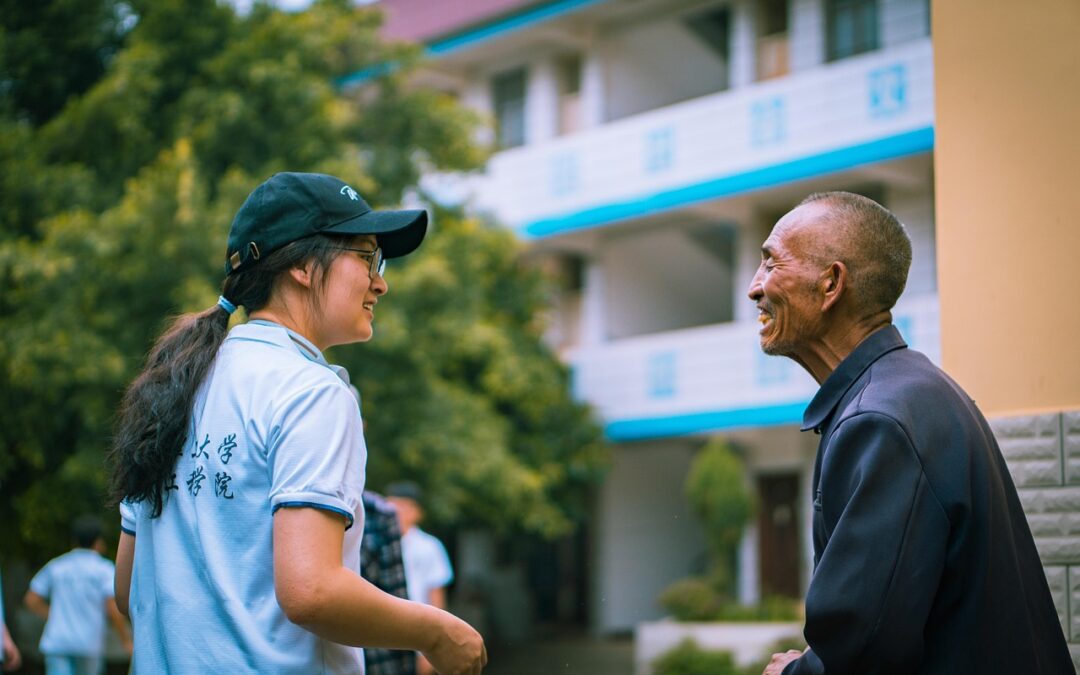
The last chapter of John’s Gospel takes us to Galilee where Peter, John and the other disciples have returned to their work as fishermen. They have spent the entire night on Lake Tiberias but, unfortunately, their efforts have been fruitless.
The Risen Lord appears for the third time and encourages them to cast out their nets once more and this time they gather a large number of fish. The Lord invites them to join him on the shore and to share their food but though Peter and the others have recognized him, they dare not speak to him directly.
Jesus takes the initiative and asks Peter a very challenging question, ‘Simon son of John, do you love me more than these men?’ The tone seems solemn as Jesus continues by asking Peter[1] three timesi to care for his sheep [2]
Lord, you know all things; you know that I love you.
However, Peter knows he has betrayed the Lord, and the memory of this tragic experience prevents him from responding positively to Jesus’ question. He humbly replies, ‘You know that I love you.’
During their conversation, Jesus does not hold the betrayal against Peter; nor does he point out the mistakes he made. He reaches out to him in a way which makes Peter feels at ease and Jesus’ friendship heals his painful wound. The only thing he asks is to rebuild their relationship with an attitude of mutual trust.
Peter responds by showing not only an awareness of his own weakness but also a sense of unlimited trust in the welcoming love of his Master and Lord:
Lord, you know all things; you know that I love you.
Jesus asks each of us the same question: do you love me? Do you want to be my friend?
He knows everything: he knows the gifts we have received from him and he knows our weaknesses and wounds that may still be raw and unhealed within us. Yet he renews his trust, not in our strengths, but in our friendship with him.
This friendship gives Peter the courage to witness to his love for Jesus to the point of giving his life.
‘We all experience moments of weakness, frustration, and discouragement… adversity, painful situations, illness, deaths, inner trials, misunderstandings, temptations and failures… When people feel unable to overcome certain physical or spiritual challenges by relying on their own strength, they are forced into the position of having to trust in God. And he intervenes because he is attracted by this trust. He can achieve great things which seem all the more powerful because they spring from an awareness that we are small and incapable.’ [3]
Everyday we can stand before God just as we are and ask for his healing friendship. In this trusting surrender to his mercy we can return to intimacy with the Lord and resume our journey with him.
Lord, you know all things; you know that I love you.
This word of life can also become a personal prayer as we acknowledge the limits of our strength but place our trust in God and thank him for all the signs of his love:
‘I love you because you have entered my life more than the air in my lungs, more than the blood in my veins. You entered where no one could enter, when no one could help me, when no one could comfort me… Enable me to be grateful to you – at least a little – in the time I have left, for this love that you poured out on me, and forced me to say to you: I love you.’ [4]
We can follow Jesus’ style of loving in our relationships in the family, society and the Church. Jesus loved everyone, he was the first to love and he ‘washed the feet’ [5] of our brothers and sisters, especially the least and most fragile. By doing this, we will learn to welcome everyone with humility and patience, without judging, open to asking and accepting forgiveness and understanding together how to walk side by side through life.
Edited by Letizia Magri & the Word of Life Team
©Photo: Canva
[1] Cf. Mt 16,18-19.
[2] Gv 10,14.
[3] C. Lubich, Word of Life, July 2000
[4] Gratitudine’ Dottrina Spirituali, 2001
[5] Cf. Gv 13,14.